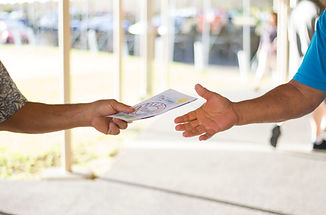
An estimated 1.3 million people in the UK are living with long-term effects of brain injury
Did you know?
How Brain Injuries or ABI can affect people at home (and their loved ones)
When someone comes home after a brain injury, life as they and their family knew it often changes in both obvious and subtle ways. Everyday routines such as getting dressed, moving around the house, cooking, getting in or out of bed or even simply chatting may become harder. Fatigue, memory lapses, mood swings, sensory changes or balance difficulties might mean that the person requires increasing levels of help, sometimes suddenly, sometimes gradually.
For families, loved ones and unpaid carers this can mean a shift in roles: someone who once shared responsibilities may now find themselves increasingly providing assistance or supervision. The home environment might need adaption, for example grab rails, accessible bathrooms, reorganised furniture or specialist equipment. Emotionally it can feel like a journey of adjustment and change. The person with the injury may experience frustration or grief for lost abilities and independence, while family members might find themselves juggling care and other demands (work, personal life, health).
Because brain injuries often come with unpredictability (improvements, plateaus, new issues etc), planning ahead can feel like navigating unknown worlds. A homecare partner that understands this complexity, offers consistent support and helps both the person and the family to adapt can make a meaningful difference in keeping home a place of dignity, comfort and connection.
Make Horizons Homecare Your Provider
We will handle everything for you
Its about continuity, friendship, and puncutality...
Which is why we arrive on time, every time, with a familiar face.
You also get access to our Family Portal, so you are always in the know.
What is a Brain Injury or Acquired Brain Injury?
“Brain injury” (often referred to as an acquired brain injury or ABI) covers any damage to the brain occurring after birth due to trauma, stroke, tumour, infection, lack of oxygen, or other causes.
Such injury may result in impaired movement, weakened muscles, changes in sensation or vision, as well as difficulties with memory, concentration, mood, behaviour and communication. The severity and combination of these effects vary significantly depending on the part of the brain affected, the cause of injury and how quickly rehabilitation and support begin.
In short: the brain’s signalling pathways become disrupted, and this leads to a range of long-term challenges.
How we support people with ABI

At Horizons Homecare we know that recovering and living with a brain injury is about much more than managing physical symptoms: it’s about preserving identity, dignity, connection and home life. We begin by working closely with the person and their family to understand the unique effects of the injury, their goals, the home environment and the routines that matter.
Our care teams are trained to recognise and respond to changes in mobility, cognition, mood and communication. We support safe movement around the home, assist transfers if needed, monitor for fatigue or behaviour changes and liaise (with consent) with therapy or specialist teams. We help families understand how the brain injury may evolve, provide consistent visits (so the same carers build relationships and familiarity), and review plans regularly so that as needs change, so does the care.
Importantly, we place the person at the heart of everything: supporting meaningful engagement in life, maintaining as much independence as possible, and helping families feel informed and supported rather than overwhelmed. With our tailored, condition-aware approach, Horizons Homecare aims to help people with brain injury and their loved ones live in their home with confidence, safety and dignity.
Three simple steps to using Horizons Homecare
1. Get in touch with us
Have a no obligation, confidential, conversation with one of our care experts to discuss your needs. We will ask questions about you or your loved ones and hopefully we will book the next stage.
Our core values...
The foundation of our success
Kindness
We believe that being truly kind isn't a skill, and it certainly isn't something you can learn. Being kind by nature is who you are!
Thats why we only employ, train and nurture those who are truly kind and caring towards other people. Not only does this belief form our recruitment process and decisions, it has become one of the foundations of our business.
Punctuality
We firmly believe that routines are what keep us as people, independent. Why should that change just because you require support at home?
Punctuality is another foundation of our business, and it means that when you become a client of Horizons, you will always know when your care team will be arriving. No more care workers being late, and no more missed visits.
Continuity
Something we have always been very eager to improve is the quite possibly the biggest 'flaw' in social care services today. Continuity...
After all, we wouldn't want our loved ones seeing a different person at every care visit, so why should you have to put up with it?
This is why you will have your very own team of care workers that really understand you and your routines. Your history, your family and your hobbies.
Family
The word family, encapsulates everything that we stand for, but unlike others who say they are a family run company. We truly are!
From our HCAs to our clients, we are all one family striving for better outcomes and happier lives. This is why family is not only a core value, but the bricks and mortar we build the foundations on.




